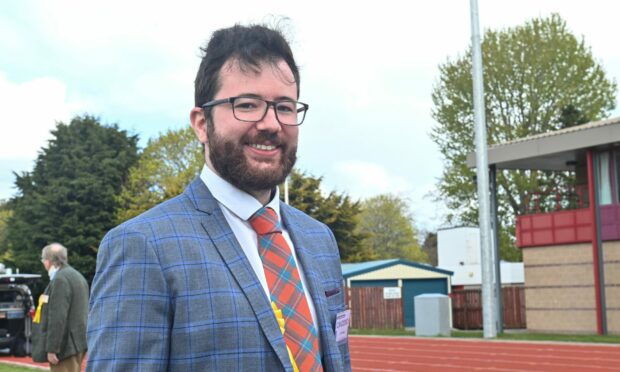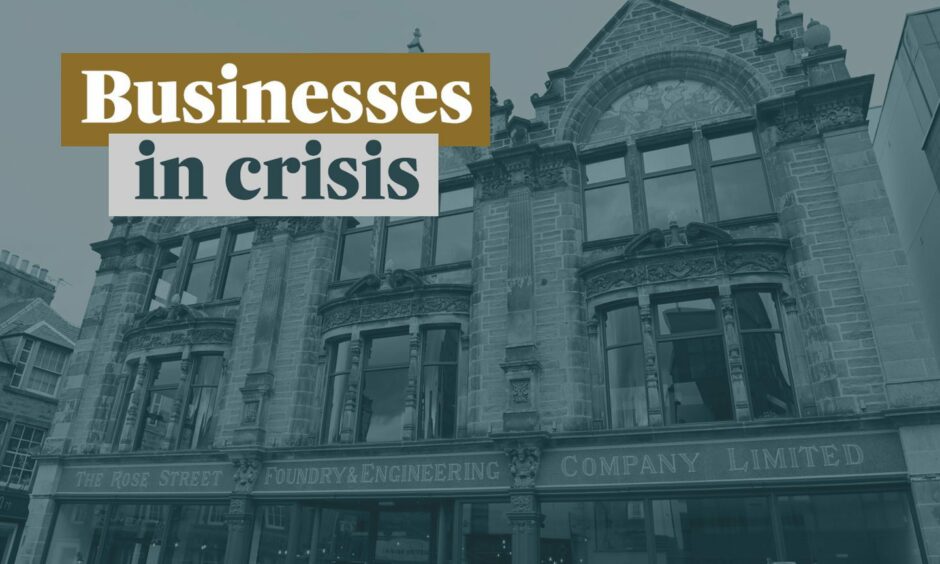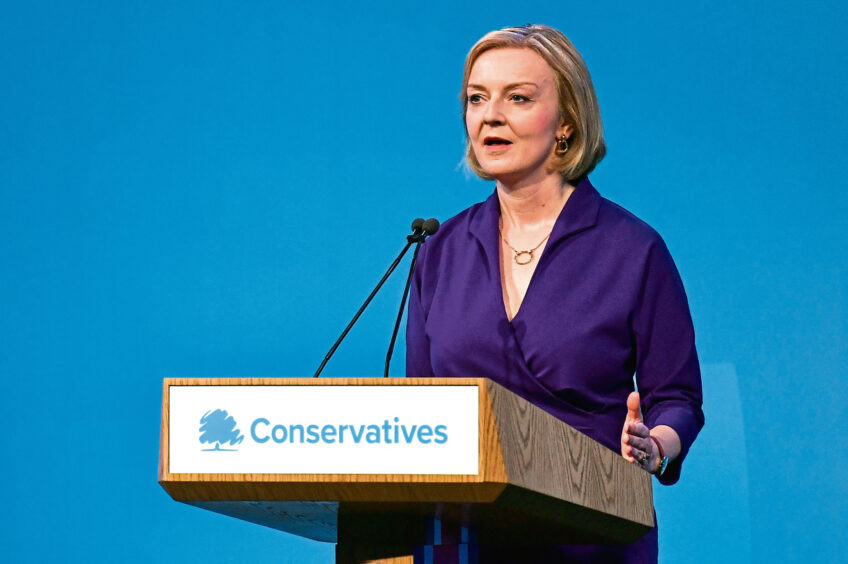Councillor David Gregg is leading calls for the Highland Council to take swift action in addressing the cost of living and energy crisis.
Dr Gregg says national energy cap schemes could leave out Highland constituents who rely on oil to heat their homes.
And the council administration is not acting quickly enough to address the problem.
The Liberal Democrats want to see Highland Council take a range of steps to help local families and businesses.
These include ‘heat hubs’, insulation, benefits advice and political lobbying.
Highlands hit hard
In a motion seen by the P&J, the Highland Council opposition party refers to ‘the worst cost of living crisis for 50 years’.
The motion quotes Citi bank forecasts, which put inflation at 18% next year. It also observes that one in three Highland households are in fuel poverty – double the national average.
Inverness-based doctor Dr Gregg – one of the new councillors elected in May – is taking the motion to a meeting of the Highland Council on 22 September.
He says he is already seeing the impact of the crisis in his ward.
“It’s clear it’s the major issue affecting all of our residents at the moment,” says Mr Gregg. “Increasing energy prices are already affecting families to the point that they’re having to make very difficult choices about their household budgets.”
He also highlighted the recent announcement that Rose Street Foundry is to close due to rising costs.
“That was a really successful refurbishment of a prominent building in the centre of town. A business that survived through lockdown, and it’s had to close,” he said.
“Without action on this we’ll see businesses go to the wall at a much higher rate.”
What about oil heating?
Dr Gregg acknowledges that Liz Truss has announced plans to cap energy bills. However, he says this follows months of inaction by the UK Government.
Moreoever, the Liberal Democrats are worried it won’t help the most rural areas of Highland.
“Fuel poverty is a massive problem in the Highlands,” says Dr Gregg. “It’s not going to be fixed by what’s been announced. Lots of our residents rely on domestic heating oil, which is not covered by the energy price cap.”
Dr Gregg hopes this may still be corrected as more details emerge in the coming days. Regardless, he says Highland Council can and should be more proactive in offering help.
His motion calls on Highland Council to set up ‘heat hubs’ in council-owned buildings, to provide warm spaces for people unable to heat their homes in the winter.
The Liberal Democrats also want the council to review eligibility criteria for council-administered benefits and ramp up its home insulation programme.
“Insulation hasn’t happened at a particularly quick rate,” says Mr Gregg. “Even pre-pandemic it would have taken us 160 years to insulate every property that needed it. That’s slowed down since the pandemic.”
Members discussed the insulation programme at a recent meeting of the housing committee, but were told that rising costs and supply chain problems had hampered progress.
Highlands needs action on cost of living
While acknowledging the challenges, Dr Gregg thinks the council should have taken action more quickly.
His motion calls for an emergency cost-of-living summit. This would bring together politicians, NHS Highland, Citizens Advice Bureaus, food banks, trade unions and public transport operators to explore local solutions.
“I would have expected that to have happened by now,” says Dr Gregg. “I feel we’ve taken a long recess while crises have been happening. I’m sure there is work going on by the administration but we’ve not been proactively asked to contribute anything.”
Alongside cross-party discussions, Dr Gregg wants the council to look outwards and lobby government.
The motion asks Highland Council to write to the UK Government requesting a support scheme for households reliant on oil and other domestic fuels. This is alongside extending the rural fuel duty relief scheme, a VAT cut, reintroducing the pensions triple lock and a £40 per week universal credit supplement.
The ‘ask’ for the Scottish Government is to cancel the rail fares hike and expand the Highland Railcard Scheme to all of Highland. The Liberal Democrats also want Holyrood to increase disability benefits and fund more insulation schemes.
‘We want to get things moving forward’
Council leader Raymond Bremner says the cost of living crisis is of “huge importance” and the administration will bring a report to council in two weeks to allow for “focused discussion”.
“It will also give us an opportunity to be advised of any gap analysis between UK Government and Scottish Government announcements and how the Council can best shape and target assistance in respect of that,” says councillor Bremner. “Our aim should be to mitigate the impact on those who are most affected by the cost of living crisis.”
Dr Gregg is concerned that the late report won’t allow sufficient time to to arrive at a consensus. This could create a complex debate at the meeting.
However, he says he will be happy to tweak his motion and arrive at something everyone can support.
“I don’t want the barrier to be that this is a Lib Dem idea and we have a fight over whose party takes credit,” says Dr Gregg. “We just want to get things moving forward.”
Councillor Bremner said: “There is every opportunity between now and 22 September for cross-party discussion with leaders at the council to consider the shape of mitigation and action.
“I’d really like to avoid bringing political positioning into this. It’s far too important a matter for the people and communities of the Highlands.
“The fastest way we can act on the cost of living crisis and help our Highland communities is to work together and see what we can agree to do at the forthcoming council meeting.”
Are you interested in more exclusive and breaking Highland and Islands news from the P&J? If so, why not join our dedicated Facebook page HERE




Conversation